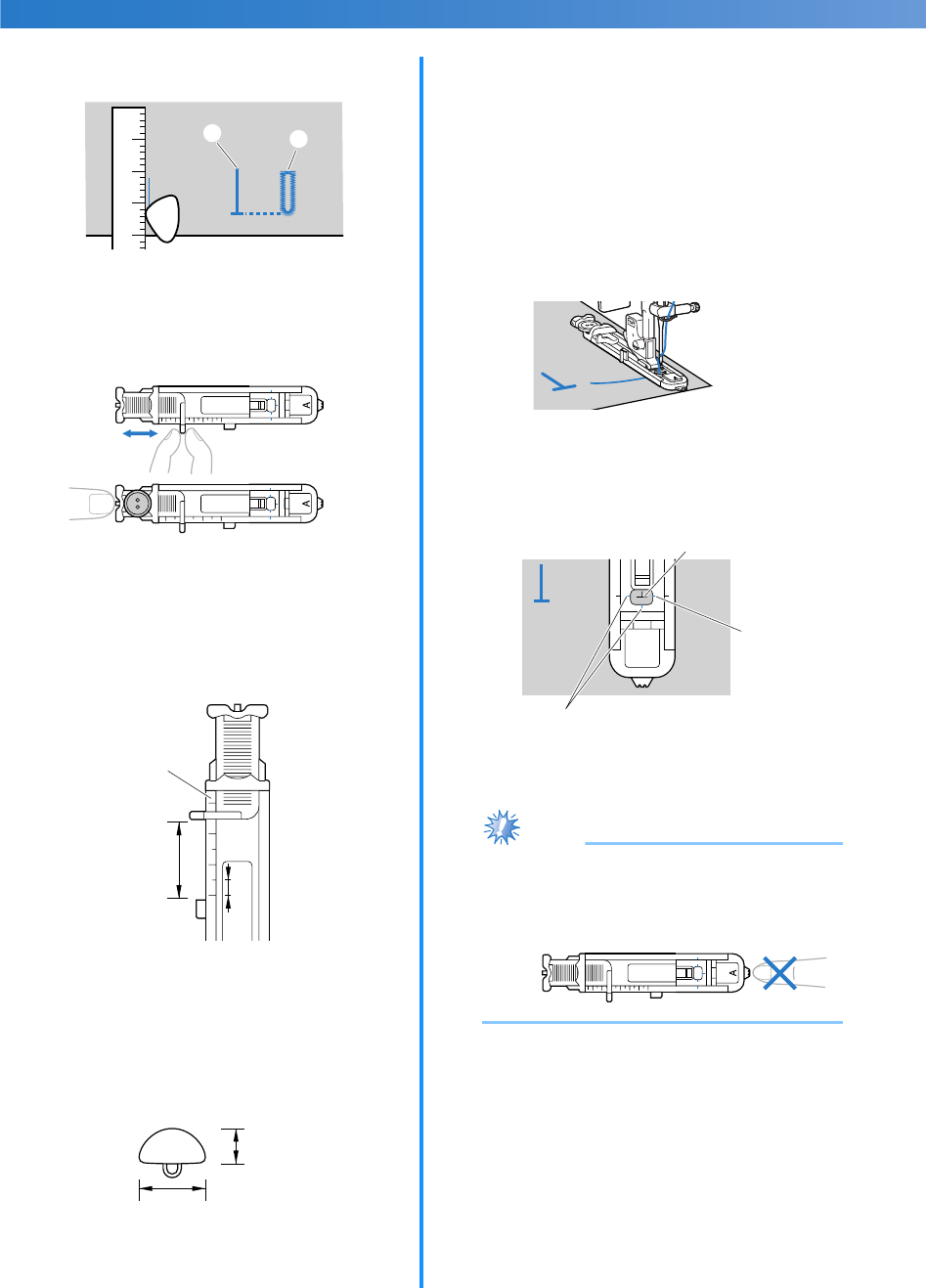
UTILITY STITCHES ——————————————————————————————————————————————————————————————————
——
58
a
Use chalk to mark on the fabric the position
and length of the buttonhole.
a Marks on fabric
b Finished stitching
b
Pull out the button guide plate of buttonhole
foot “A”, and then insert the button that will
be put through the buttonhole.
■ If the button does not fit in the button guide
plate
Add together the diameter and thickness of
the button, and then set the button guide
plate to the calculated length. (The distance
between the markings on the presser foot
scale is 5 mm (3/16 inch).)
a Presser foot scale
b Length of buttonhole (diameter + thickness
of button)
c 5 mm (3/16 inch)
Example: For a button with a diameter of 15 mm
(9/16 inch) and a thickness of 10 mm (3/8 inch),
the button guide plate should be set to 25 mm (1
inch) on the scale.
a 10 mm (3/8 inch)
b 15 mm (9/16 inch)
X The size of the buttonhole is set.
c
Turn on the machine.
d
With the pattern selection dial, select a stitch.
e
Attach buttonhole foot “A”.
• For details, refer to “Replacing the presser
foot” (page 31).
f
Pass the upper thread down through the hole
in the presser foot, and then pull it under the
presser foot, as shown.
g
Position the fabric with the front end of the
buttonhole mark aligned with the red marks
on the sides of the buttonhole foot, and then
lower the presser foot lever.
a Mark on fabric (front)
b Red marks on buttonhole foot
Note
● When lowering the presser foot, do not
push in the front of the presser foot,
otherwise the buttonhole will not be sewn
with the correct size.
a
b
a
b
c
a
b
A
a
b
b


















